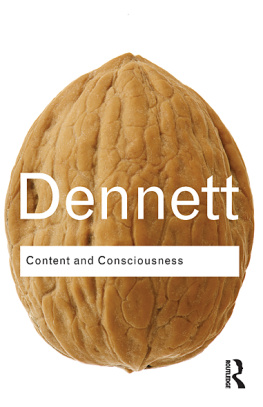Gods Lovers
Nicolaas Biegman
Text and Images
Gods Lovers
A Sufi Community in Macedonia
First published in 2007 by
Kegan Paul International
This edition first published in 2011 by
Routledge
2 Park Square, Milton Park, Abingdon, Oxon, OX14 4RN
Simultaneously published in the USA and Canada
by Routledge
711 Third Avenue, New York, NY 10017
Routledge is an imprint of the Taylor & Francis Group, an informa business
Nicolaas Biegman, text and images, 2007
Transferred to Digital Printing 2011
All rights reserved. No part of this book may be reprinted or reproduced or utilised in any form or by any electronic, mechanical, or other means, now known or hereafter invented, including photocopying and recording, or in any information storage or retrieval system, without permission in writing from the publishers.
British Library Cataloguing in Publication Data
A catalogue record for this book is available from the British Library
ISBN 10: 0-7103-1191-5 (hbk)
ISBN 13: 978-0-7103-1191-7 (hbk)
Publishers Note
The publisher has gone to great lengths to ensure the quality of this reprint but points out that some imperfections in the original copies may be apparent. The publisher has made every effort to contact original copyright holders and would welcome correspondence from those they have been unable to trace.
This book is dedicated to the memory of Sheikh Erol, who died on September 16th, 2005.
We, the dervishes, have accepted the fact that Erol Baba has left us, for now, in this world. From time to time Amdi and I see him in a dream. He says that he is all right and that he is here around us when we work in the tekke, that he can see and hear us but that we cant see him. It is strange; if Spielberg heard about this he would at once make a science fiction film about it, but we are actually experiencing it.
Arben, in an e-mail dated October 14th, 2005
Acknowledgements
I am grateful for the trust and friendship shown me by Erol Baba and his dervishes, who for two years kindly suffered my presence always with a camera in tow and often extra lighting equipment at their ceremonies and muabet, the friendly conversation that normally follows. The difficult conditions a small room, lots of motion and emotion and very little light meant that I often needed supplementary lighting. It was supplied by my close friend and fellow traveler throughout Macedonia, the Macedonian photographer Rumen Kamilov.
Professor Alexandre Popovi of CNRS, Paris, generously shared with me his vast knowledge of the Balkan Rifais and opened doors to his valuable contacts in the field. I remain indebted to the spirit of Annemarie Schimmel, whose admirable Mystical Dimensions of Islam forms the basis for much of the section on Sufism in the Introduction. I also owe a debt of gratitude to the Dutch photographer Bert Nienhuis for teaching me how to use the flash to convey the movement that is so important in Sufi rituals.
Attentive readers may recognize some passages from my previous book on dervishes Egypt - Moulids, Saints, Sufis (SDU/Kegan Paul, 1990). The essence of Sufism has not changed over the last fifteen years, so why re-invent the wheel?
A CD with music and zikr recorded at the Skopje tekke has been released by PAN Records, Leiden, The Netherlands.
Sadly, Baba Erol passed away after I completed the research for this book.
A. Erol Baba standing beside the tomb of Haznadar Baba
Introduction
Within Islam, the Sufis or Dervishes are the gentlest and most tolerant of believers and yet, surprisingly, some adherents thrust iron pins through their cheeks in the course of their devotions. Of course, there is nothing harmful to others in the act of piercing ones own flesh. Besides, it has always been restricted to a small number of Sufi orders and even among these it has become rare. But it is still practiced by the dervishes I knew in Skopje, Macedonia.
At a time when much attention is focused on the clash of civilizations and the violence many perceive to be inherent in Islam, it is helpful to realize that Islam is much more heterogeneous than is often assumed, and that large numbers of Muslims belong to the mystical movement known as Sufism, which is essentially non-political, non-violent and centered on a burning love of God.
If we confine our interest in Islam to the aggressive elements within it which are undeniably there we will be unlikely to learn much about the religion in toto. The virulent Islamists, who use particular interpretations of holy writ to construe their exclusive brand of Islam, are typically noisy and visible, but they are relatively few in number. It is unfortunate that in the West the opinions of this minority are sometimes considered as representative of the spirit of Islam as a whole.
Throughout the Muslim world, from Bosnia to Mozambique and from Senegal to Indonesia, there are thousands of Sufi orders, or tarikats. At various times and places, these tarikats have played a role in politics, but their theology and approach make them mostly keep to themselves. Their main interest is in God and their relationship with Him, and their cult is built on rituals developed and sustained over many centuries.
Gods Lovers is about a marginal group of Roma dervishes with exceptional rituals, living on the fringes of the Islamic world in Macedonia. However, there exist thousands of essentially similar Sufi communities all over the Muslim areas of the globe and there is nothing marginal about them, even though they are often ignored or despised by the elites of their countries. Most are unseen even by orientalists, who have traditionally been trained to study the texts of the literate elites, rather than popular practice. Among Macedonias Muslims, the Sufis may be few and far between, but in Egypt Sufi orders claim a membership of six million. With the addition of the members of their families, that is a sizeable proportion of the population. In other Muslim countries there is a comparable Sufi presence.
The unassuming mysticism of the Muslim masses has a profound political relevance, as it renders large numbers of believers virtually immune to the recent epidemic of fundamentalism. On the whole, the Sufis dont fight back against the propaganda for a pure faith and the accusations about the supposedly backward and heretical character of their beliefs and practices. They simply close their minds to it. The moderating influence of popular Sufism within the composite and decentralized world of Islam is still far from being fully studied and appreciated.
Sufism demands a life-long commitment. In the words of Yunus Emre,
A person who loves God has a heart which never parts from God; unlike lovers of women, he does not love, then leave.
Usually, though, being a dervish is not a full-time occupation. A tekke is not a monastery. As a rule, a dervish has a family and a job (if he can find one), a trade or a profession. Had that not been the case, the Sufi movement would never have attracted so many adherents.








